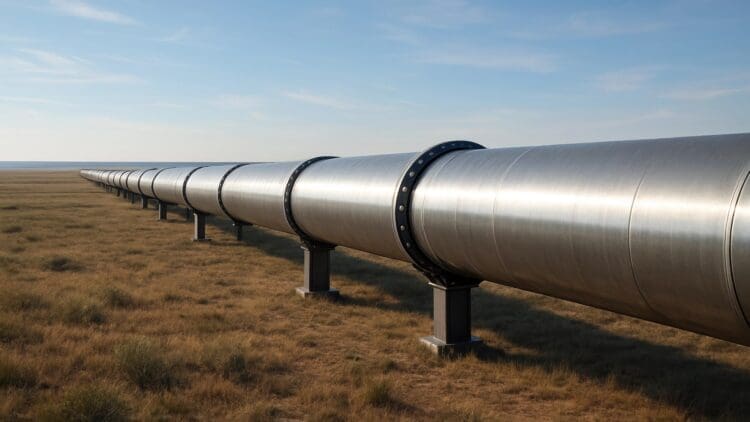Nearly four years after the Russian invasion of Ukraine, the EU has taken a step towards finally phasing out Russian gas imports when the leaders of the commission came together at a recent event to vote on the next step in ending the dependence on Russian-made coal and gas. The Ukraine war has devastated the nation, and while the leaders of the world lament and express their dismay with Russia, they continue to rely on gas and energy exports from the former Soviet nation. Now, the EU has set a deadline to finally phase out the last remaining contracts.
The EU has approved a draft regulation that outlines the process of phasing out Russian gas and oil
For generations, despite the geopolitical situation that fluctuates depending on who is in power, many nations have turned to Russia to supply them with essential oil and gas. However, since the unprovoked Russian invasion of Ukraine, which was four years ago now, many leaders have noted that the continued importing of Russian gas provides it with essential funding to keep its war going.
The result has been that the majority of EU nations have proposed several methods to penalize Russia for its unprovoked attack on a sovereign nation. Chief among the short-term consequences for Russia have been sanctions aimed at crippling the Russian economy.
Almost all of the EU member states agreed to phase out Russian energy within two years
However, the EU has taken a step towards phasing out the last remaining stronghold for the Russian economy by voting to phase out Russian gas and oil by 2028. Nearly all the EU energy ministers voted to phase out Russian gas by 2028, with only Hungary and Slovakia opposing the initiative.
The draft regulation, which is to be voted on in the European Parliament, calls for EU members to phase out new Russian gas import contracts from January 2026, existing short-term contracts from June 2026, and long-term contracts in January 2028.
“Although we have worked hard and pushed to get Russian gas and oil out of Europe in recent years, we are not there yet.” – Denmark’s energy minister, Lars Aagaard
Russian gas still holds a billion-euro grip on the European Union
While the phasing out of Russian energy is commendable, Russian gas still has a firm grip on the EU economy. According to the European Council, Russian gas still makes up 13 percent of gas imports, accounting for more than 15 billion euros ($17.5bn) annually. However, these purchases only account for a small portion of Russian fossil fuel exports.
Additionally, the EU has placed significant trade restrictions on Russia, aiming to sever business ties with Putin. As Europe upgrades and retrofits aging power plants to increase energy independence, the end of Russian gas in Europe is a lot closer than one might suspect.
The regulation constitutes a central element of the EU’s REPowerEU roadmap to end dependency on Russian energy, following Russia’s weaponization of gas supplies and repeated disruptions of gas supplies to the EU with significant effects on the European energy market.” – The EU council statement
Hungary and Slovakia both opposed the EU’s phase-out of Russian gas
While the majority of the EU member states voted to approve the regulation, Hungary and Slovakia opposed it. However, this did not stop the initiative from moving forward, as it only needed a weighted majority of 15 states to pass, meaning they could not block it. As Europe has plans to phase out coal production completely in a few years, Russian gas and oil only have a few short years left to squeeze as much money out of existing contracts and sales before the EU ends its reliance on energy made in Mother Russia.





